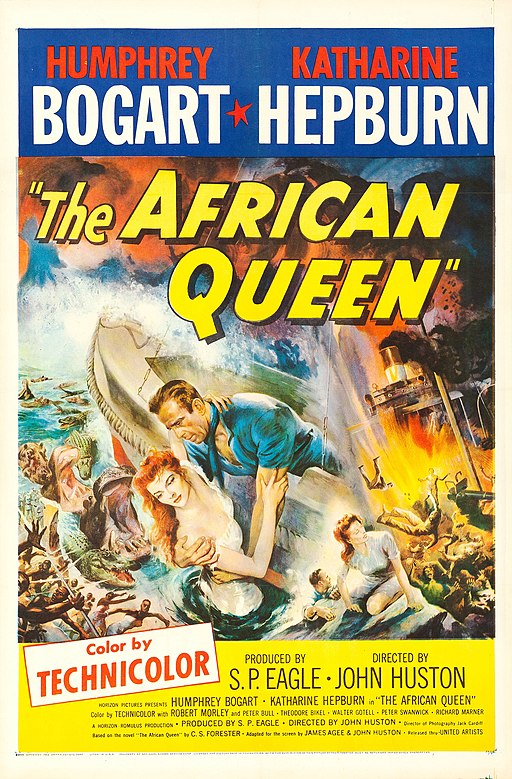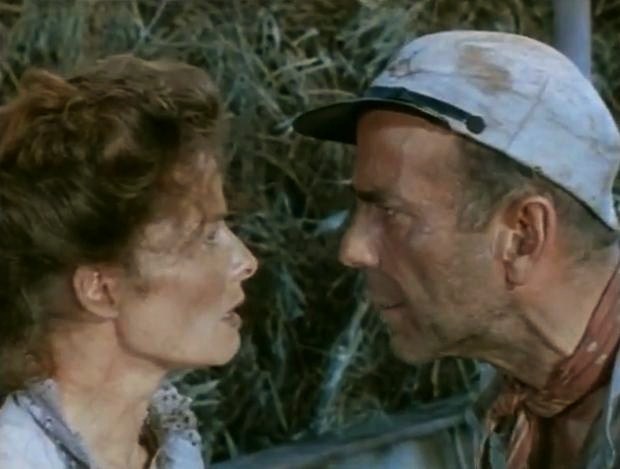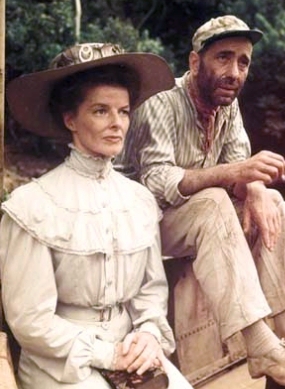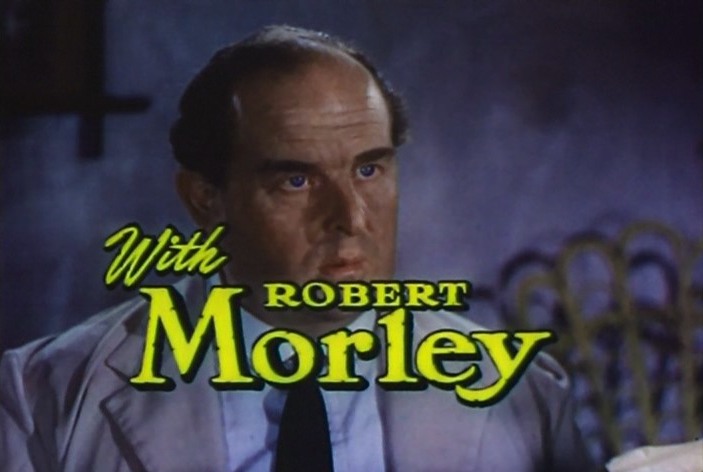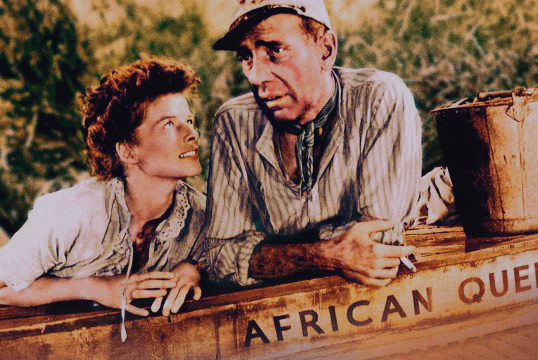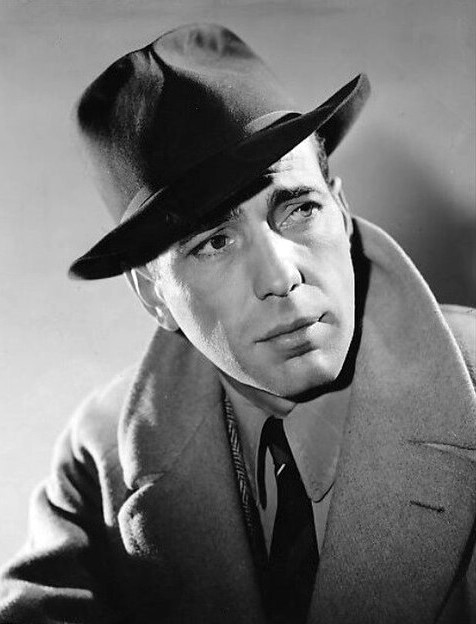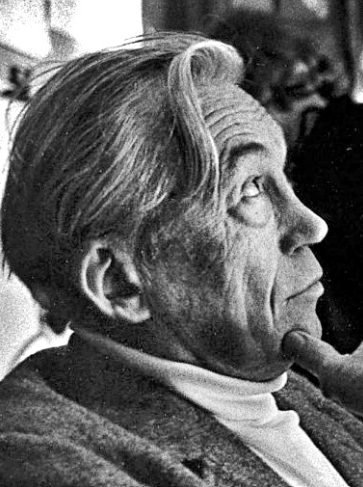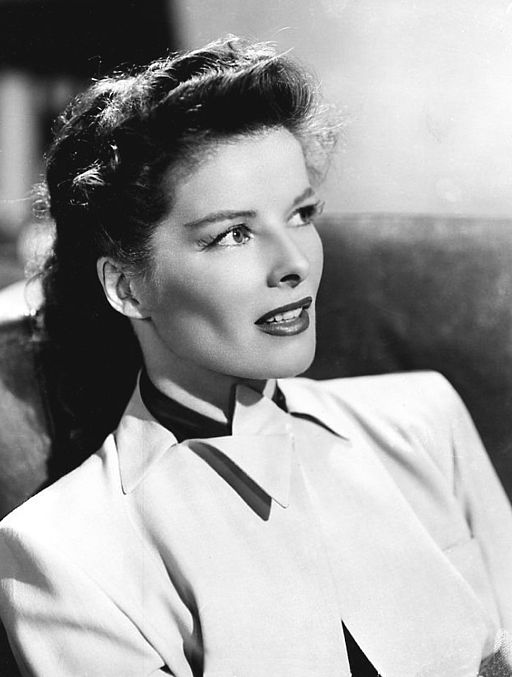The African Queen - 1951
back| Released by | United Artists |
| Director | John Huston |
| Producer | Sam Spiegel |
| Script | James Agee and John Huston, based on the 1935 novel of the same name by C.S. Forester |
| Cinematography | Jack Cardiff |
| Music by | Allan Gray |
| Running time | 105 minutes |
| Film budget | $ 1 million |
| Box office sales | $ 10,7 million worldwide |
| Main cast | Humphrey Bogart - Katharine Hepburn - Robert Morley - Peter Bull |
The African Queen
A timeless romantic adventure in war-torn Africa
"The African Queen" is notable for its adventurous plot, set in Africa during World War I, and its lead performances. Bogart won an Academy Award for Best Actor for his role, and the film itself has been celebrated for its direction, screenplay, and cinematography. It remains a beloved classic in the history of cinema.
Related
The African Queen – 1951
Overview and Analysis
"The African Queen" is a 1951 adventure film that blends elements of romance, war, and drama. Set during World War I in German East Africa, the story revolves around two very different characters who embark on a dangerous journey and, against all odds, fall in love.
Summary
The film opens with Rose Sayer (Katharine Hepburn), a British Methodist missionary, living with her brother in a remote village. Their peaceful life is shattered by the onset of World War I, which brings German troops to the area, leading to the destruction of the village and the death of Rose's brother.
Enter Charlie Allnut (Humphrey Bogart), a rough-and-ready Canadian boat captain of the dilapidated steamboat, 'The African Queen'. Charlie informs Rose about the war and reluctantly agrees to take her to safety. Rose, seeking revenge for her brother's death, convinces Charlie to use the African Queen to attack a German gunboat, the Louisa, which controls a large lake and prevents British attacks.
Their journey down the Ulanga River is fraught with challenges. They face rapids, German fortifications, and the harsh realities of the African wilderness. Throughout their journey, the prim and proper Rose and the disheveled, alcohol-loving Charlie clash due to their vastly different backgrounds and personalities. However, as they face these obstacles together, their animosity turns into respect, and eventually, love.
In a climactic moment, they convert the African Queen into a torpedo to attack the Louisa. However, as they approach the lake, heavy rains and the river's current drag the boat to the bottom. Miraculously, the sunken African Queen's torpedoes detonate and destroy the Louisa.
The film ends with Charlie and Rose rescued by British forces, where Charlie is taken as a prisoner for his initial refusal to join the war effort. However, in a happy turn of events, they express their love for each other, and Charlie proposes to Rose, which she joyfully accepts.
Analysis
"The African Queen" is a testament to the human spirit, exploring themes of resilience, love, and the clash of cultures. The film's narrative structure is simple yet effective, focusing on the evolving relationship between its two protagonists against a backdrop of war and wilderness.
Director John Huston masterfully blends adventure with romance, using the African landscape not just as a setting but as a character in itself. The cinematography by Jack Cardiff captures the beauty and the treacherous nature of the African jungle, adding an authentic layer to the storytelling.
The performances of Bogart and Hepburn are central to the film's success. Bogart’s portrayal of Charlie Allnut earned him an Academy Award for Best Actor. His character’s transformation from a disheveled loner to a heroic lover is compelling. Hepburn's portrayal of Rose is equally remarkable, showcasing her character's strength and determination.
The film also comments on the absurdity of war, as seen through the eyes of individuals who are initially indifferent to the conflict but find themselves drawn into its chaos. It's a story about how extraordinary circumstances can bring out the best in people and how love can blossom in the unlikeliest of places.
In conclusion, "The African Queen" is a timeless classic, celebrated for its compelling narrative, exceptional performances, and its ability to transport audiences to a different time and place, while conveying universal themes of love, adventure, and the triumph of the human spirit.
Official Trailer of The African Queen:
Full Cast of “The African Queen”:
- Humphrey Bogart as Charlie Allnut: The Canadian boat captain of the African Queen.
- Katharine Hepburn as Rose Sayer: A British Methodist missionary.
- Robert Morley as Reverend Samuel Sayer: Rose's brother and a fellow missionary.
- Peter Bull as Captain of the Louisa: The captain of the German gunboat.
- Theodore Bikel as First Officer of the Louisa: The first officer on the German gunboat.
- Walter Gotell as Second Officer of the Louisa: The second officer on the German gunboat.
The Challenges of Filming The African Queen:
Filming "The African Queen" was a remarkable and challenging experience, marked by its adventurous and often arduous production process. Here are some key points about the filming:
- Location Shooting: One of the most notable aspects of "The African Queen" was its on-location shooting in Africa, specifically in Uganda and the Congo. Director John Huston chose to shoot on location to bring authenticity to the film. This decision, however, came with its own set of challenges.
- Challenging Conditions: The cast and crew faced difficult conditions while filming in Africa. They contended with the harsh jungle environment, including extreme heat, diseases, and difficult terrain. Despite these challenges, these real-world elements added a level of authenticity to the film that likely couldn't have been achieved in a studio.
- Technicolor Filming: The film was shot in Technicolor, a novel and complex process at the time. Cinematographer Jack Cardiff handled these technical challenges adeptly, capturing the lush African landscape and the tense, intimate moments between the characters with equal skill.
- Health Issues: The cast and crew suffered numerous health issues during the shoot. Katharine Hepburn, for instance, got dysentery and lost a significant amount of weight. Director John Huston and others also fell ill, and Humphrey Bogart reportedly said that he and his wife, Lauren Bacall, who was visiting the set, avoided illness by sticking to a diet of canned food and whisky.
- Boat Problems: The film's title character, the steamboat 'African Queen', also posed challenges. The boat was old and temperamental, often causing delays and difficulties during shooting.
- John Huston's Vision: Huston was known for his adventurous spirit and determination to make the film as authentic as possible. His dedication to capturing the essence of the story and the environment was a driving force behind the production, though it often put him at odds with the cast and crew due to the tough conditions.
- Improvisation and Adaptation: The challenging conditions required the cast and crew to be flexible and adaptive. Much of the film had to be shot in sequence due to the logistical challenges, and Huston was known to rewrite scenes on the fly.
- Critical Success: Despite, or perhaps because of, these challenges, "The African Queen" turned out to be a critical and commercial success. The difficulties faced during filming contributed to the authenticity and intensity of the film, which resonated with audiences and critics alike.
Analysis of the Direction of John Huston:
John Huston's direction in "The African Queen" is a testament to his skill in crafting a narrative that is both intimate and epic, a hallmark of his directorial style. His approach to the film can be analyzed through various aspects:
Storytelling and Character Development
Huston's storytelling is characterized by a deep focus on character development. In "The African Queen," he takes two characters with starkly different backgrounds and personalities and puts them in a situation where they must rely on each other to survive. The film's narrative is driven by the evolving relationship between Charlie Allnut and Rose Sayer, masterfully portrayed by Humphrey Bogart and Katharine Hepburn. Huston's direction ensures that their relationship evolves naturally, avoiding clichés, and allowing the characters to grow and change organically.
Setting and Atmosphere
Huston's use of setting is another significant aspect of his direction. He chose to shoot the film on location in Africa, which was a challenging decision at the time. This choice added authenticity to the film and allowed Huston to use the natural environment as a character in its own right. The dangers and beauty of the African jungle are integral to the story, and Huston captures this through his keen eye for detail and atmosphere.
Cinematic Techniques
Huston's cinematic techniques in "The African Queen" are subtle yet effective. He employs a straightforward style of filmmaking, with a focus on strong, simple compositions and efficient editing. This approach keeps the focus firmly on the characters and the story. Huston's ability to convey complex emotions and themes through relatively simple visual means is a mark of his directorial prowess.
Handling of Themes
Huston is known for his ability to handle multiple themes simultaneously, and "The African Queen" is no exception. The film explores themes of love, war, cultural clash, and the resilience of the human spirit. Huston weaves these themes into the narrative seamlessly, allowing them to emerge naturally from the characters' experiences and interactions.
Actor's Director
Huston was known for his ability to get the best out of his actors, and "The African Queen" showcases this talent. He directed Bogart to an Academy Award-winning performance and drew out one of Hepburn's most memorable roles. Huston's skill in guiding his actors to portray nuanced, multi-dimensional characters is evident throughout the film.
Legacy and Influence
Huston's direction in "The African Queen" contributed significantly to his legacy as one of the great filmmakers of his time. His ability to tell a compelling story, set against the backdrop of a harsh yet beautiful landscape, and driven by complex characters, set a standard for adventure films. His work on this film influenced future generations of filmmakers in how to balance action with character development and how to use natural settings to enhance the storytelling.
Analysis of the Performance of Katharine Hepburn:
Katharine Hepburn's portrayal of Rose Sayer in "The African Queen" is a vivid and compelling performance that stands out as one of the highlights of her illustrious career. Her character's transformation throughout the film, under Hepburn's skillful interpretation, provides a rich and nuanced study of resilience, adaptability, and emotional depth.
Character Transformation
One of the most remarkable aspects of Hepburn's portrayal is the transformation of Rose Sayer from a prim and proper missionary to a resourceful and determined survivor. Initially, Rose is depicted as a devout, somewhat sheltered woman, dedicated to her missionary work alongside her brother. However, following her brother's death and the destruction of their mission, Rose undergoes a profound change.
Hepburn masterfully captures this transition, gradually shedding Rose's initial rigidity and naivety. As the film progresses, she evolves into a character of surprising grit and resilience. This transformation is not abrupt but is instead portrayed as a believable progression, reflecting Rose's inner strength and adaptability.
Chemistry with Humphrey Bogart
A significant aspect of Hepburn's role is her interaction with Humphrey Bogart's character, Charlie Allnut. The chemistry between Hepburn and Bogart is central to the film's narrative. Hepburn's performance as Rose creates a dynamic contrast with Bogart's rough-and-ready Charlie. Her initial disapproval of Charlie's lifestyle and habits slowly gives way to admiration and love. Hepburn skillfully portrays this shift in their relationship, moving from disdain to deep affection in a manner that feels both authentic and heartwarming.
Emotional Range
Hepburn's portrayal of Rose demonstrates an impressive emotional range. She conveys a wide spectrum of emotions — from the despair and grief following her brother's death to the determination in planning the attack on the German gunboat. Her ability to express deep emotion without overacting is a testament to her skill as an actress.
Independence and Strength
Rose Sayer, as portrayed by Hepburn, is a character ahead of her time in terms of her independence and strength. Despite the film being set in World War I, Hepburn's Rose does not conform to the typical damsel-in-distress trope. She is intelligent, resourceful, and often takes the lead in their perilous journey. This portrayal of a strong, independent woman contributed to the film's timeless appeal and resonated with audiences, especially in an era when such roles were less common.
Symbolic Representation
In a broader context, Hepburn's character represents themes of empowerment and the breaking of social norms. Rose's journey symbolizes a break from convention and a challenge to societal expectations of women during that era. Hepburn's dignified and earnest portrayal ensures that Rose is seen as a character of substance and depth.
Conclusion
Katharine Hepburn's performance in "The African Queen" is a highlight of her career and a significant contribution to the film's success. Her portrayal of Rose Sayer is a complex blend of vulnerability, strength, wit, and humanity. Hepburn brings depth and nuance to the character, making Rose an unforgettable and inspiring figure in cinematic history. This role not only showcased Hepburn's range as an actress but also helped to redefine the portrayal of women in Hollywood films.
Performance of Humphrey Bogart as Charlie Allnut:
Humphrey Bogart's portrayal of Charlie Allnut in "The African Queen" is a masterful performance that showcases his exceptional talent and versatility as an actor. Bogart's character, Charlie, is a rough, down-to-earth boat captain, whose journey alongside Katharine Hepburn's Rose Sayer forms the heart of the film. The role stands out in Bogart's career for its departure from the tough, hard-boiled characters he often played and highlights his ability to imbue a character with depth and humanity.
Characterization of Charlie Allnut
Charlie Allnut is initially presented as a somewhat disheveled, heavy-drinking boat captain, seemingly content with his unambitious and solitary life in the African wilderness. Bogart effectively portrays Charlie's pragmatic and nonchalant attitude towards life. His portrayal is marked by a rough exterior, a sharp wit, and a certain charm that becomes increasingly evident as the film progresses.
Dynamic Transformation
One of the critical aspects of Bogart's performance is the dynamic transformation of Charlie throughout the film. Initially, Charlie seems indifferent to the war and the broader world, focused solely on his immediate survival and comfort. However, through his interactions with Rose and their shared journey, he undergoes a significant change. Bogart skillfully navigates this transformation, showing a gradual softening of Charlie's rough edges and a growing sense of purpose, courage, and ultimately, heroism.
Chemistry with Katharine Hepburn
The interplay between Bogart's Charlie and Hepburn's Rose is central to the film's narrative and its emotional depth. Bogart and Hepburn's on-screen chemistry provides a compelling study in contrasts and a gradual alignment of two very different characters. Bogart's ability to transition from a gruff, cynical loner to a man deeply in love, willing to risk everything for Rose and their cause, is a testament to his nuanced acting skills.
Emotional Depth
Bogart brings a surprising emotional depth to the character of Charlie. His portrayal is not one-dimensional; instead, he infuses Charlie with a sense of vulnerability and sensitivity that lies beneath his rugged exterior. This depth becomes particularly evident in the scenes where Charlie and Rose share their fears, hopes, and eventually, their love for each other.
Symbolic Representation
Charlie Allnut, as portrayed by Bogart, symbolizes the everyman caught in extraordinary circumstances. He represents themes of redemption, resilience, and the transformative power of love and purpose. Through Charlie, Bogart explores the journey from individualistic survival to selfless heroism, reflecting broader themes of human nature and the impact of personal relationships on one's worldview.
Conclusion
Humphrey Bogart's role as Charlie Allnut in "The African Queen" is a standout performance that earned him an Academy Award for Best Actor. His portrayal is layered, showing a character who is at once humorous, rough, vulnerable, and ultimately heroic. Bogart's Charlie is not just a foil to Hepburn's Rose but a fully realized character who undergoes a significant and believable transformation. This role showcases Bogart's range and depth as an actor and remains one of the most memorable performances in his distinguished career.
The Story of the Screenwriter of The African Queen:
"The African Queen" was co-written by James Agee and John Huston, the film's director. James Agee is a particularly notable figure in the world of screenwriting and literature.
- Background: James Agee (1909-1955) was an American novelist, screenwriter, journalist, poet, and film critic. He is known for his profound influence on film criticism and for his distinct literary style.
- Career: Before delving into screenwriting, Agee was a respected film critic, writing for Time magazine and The Nation. His insightful and eloquent reviews are still considered significant contributions to film criticism.
- Notable Works: Beyond "The African Queen," Agee is renowned for his collaboration with photographer Walker Evans on "Let Us Now Praise Famous Men" (1941), a book documenting the lives of rural sharecroppers during the Great Depression. He also wrote the novel "A Death in the Family" (1957), a poignant exploration of loss and family, which was published posthumously and won the Pulitzer Prize for Fiction.
- Contribution to "The African Queen": For "The African Queen," Agee co-wrote the screenplay with John Huston. The script was adapted from the 1935 novel of the same name by C.S. Forester. Agee's ability to create nuanced, emotionally resonant characters and dialogue was a significant factor in the film's success.
- Screenwriting Style: Agee's screenwriting is known for its lyrical quality and depth of character. He had a unique ability to convey complex emotions and relationships through dialogue and narrative structure, a talent that is evident in "The African Queen."
- Legacy: Despite his relatively short life, James Agee left a lasting impact on both literature and film. His work is celebrated for its lyrical prose, emotional depth, and keen insight into the human condition.
Memorable Quotes from the Movie:
"The African Queen" is known for its memorable dialogue, reflecting the sharp wit, emotional depth, and unique character dynamics of the film. Here are some of the notable quotes from the movie:
- Charlie Allnut (Humphrey Bogart): "A man takes a drop too much once in a while, it's only human nature."
- Rose Sayer (Katharine Hepburn): "Nature, Mr. Allnut, is what we are put in this world to rise above."
- Rose Sayer: "We've got work to do."
- Charlie Allnut: "Work? What kind of work?"
- Rose Sayer: "We are going to sink the Louisa."
- Charlie Allnut: "I never dreamed that any mere physical experience could be so stimulating!"
- Rose Sayer: "You're the bravest man that ever lived."
- Charlie Allnut: "I'm sorry I was such a coward. Truly I am."
- Charlie Allnut: "How'd you like it?"
- Rose Sayer: "Like it?"
- Charlie Allnut: "White water, rapids!"
- Rose Sayer: "I never dreamed..."
- Rose Sayer: "Dear Lord, we've come to the end of our journey. In a little while, we'll stand before You, please... make us worthy."
Awards and Recognition:
Academy Awards (Oscars)
Won:
- Best Actor in a Leading Role: Humphrey Bogart
Nominated:
- Best Actress in a Leading Role: Katharine Hepburn
- Best Director: John Huston
- Best Writing, Screenplay: John Huston and James Agee
British Academy Film Awards (BAFTA)
Nominated:
- Best Film from any Source
- Best British Actress: Katharine Hepburn (for her role in "The African Queen" and "The Secret People")
- Best Foreign Actor: Humphrey Bogart
Directors Guild of America (DGA)
Nominated:
- Outstanding Directorial Achievement in Motion Pictures: John Huston
Golden Globe Awards
Nominated:
- Best Motion Picture – Drama
- Best Director – Motion Picture: John Huston
- Best Actor – Motion Picture Drama: Humphrey Bogart
- Best Actress – Motion Picture Drama: Katharine Hepburn
New York Film Critics Circle Awards
Won:
- Best Actor: Humphrey Bogart

